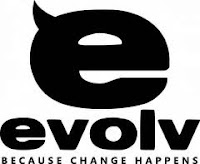 A handful of technology companies from Knack.it
Corp. to Evolv Inc. are doing just that, developing video games and online
questionnaires that measure personality attributes in a job applicant.
A handful of technology companies from Knack.it
Corp. to Evolv Inc. are doing just that, developing video games and online
questionnaires that measure personality attributes in a job applicant.
Based on
patterns of how a company’s best performers responded in these assessments, the
software estimates a candidate’s suitability to be everything from a warehouse
worker to an investment bank analyst.
“People are
our biggest resource, and right now a lot of them are mismatched,” said
Brynjolfsson (left), who specializes in research on information technology and
productivity and is an adviser to Knack. “If you put the right kind of person
in the right task, it’s good for that person and it’s good for the company.”
The advent of the Internet has been both a gift and
a curse to recruiters, who now can access a greater pool of potential workers
yet also get inundated with too many applications to process.
The problem has
been a lack of tools to quickly, cheaply and accurately sort through that
deluge in an economy that has seen almost five years of above-7 percent
unemployment.
“You have
this enormous pool of people that’s being missed because of the way the entire
industry goes after the same kinds of people, asking, did you go to Stanford,
did you work at this company?” said Erik Juhl, head of talent at Vungle Inc., a
San Francisco-based video advertising startup, and formerly a recruiter at
Google Inc. and LinkedIn Corp. “You miss what you’re looking for, which is --
what is this person going to bring to the table?”
To aid that search, Juhl this month will begin using
an online video game designed to track, record and analyze every millisecond of
its players’ behavior. Developed by Knack in Palo Alto, California, Wasabi
Waiter places job-seekers in the shoes of a sushi server who must identify the
mood of his cartoon customers and bring them the dish labeled with the matching
emotion.
On a running clock, they must also clear empty dishes into the sink
while tending to new customers who take a seat at the bar.
Using about a megabyte of data per candidate,
Knack’s software measures a variety of attributes shown in academic studies to
relate to job performance, including conscientiousness and the capacity to
recognize others’ emotions. Knack’s clients will also see a score estimating
each applicant’s likelihood of being a high performer.
 In a study last year, Knack piloted its technology
with Royal Dutch Shell Plc (RDSA)’s GameChanger, a program that invests in
entrepreneurs to develop their ideas into new products for the energy sector.
Hans Haringa, an executive at GameChanger, wanted to see if Knack’s video games
could predict who pitched the ideas that turned out to be successful.
In a study last year, Knack piloted its technology
with Royal Dutch Shell Plc (RDSA)’s GameChanger, a program that invests in
entrepreneurs to develop their ideas into new products for the energy sector.
Hans Haringa, an executive at GameChanger, wanted to see if Knack’s video games
could predict who pitched the ideas that turned out to be successful.
“Knack built
themselves a calibrated model with the capacity to predict innovative talents,”
said Haringa, who added that GameChanger is considering adding Knack’s tool to
select the right people in whom to invest. “It’s early days for the technology
but it clearly has upside and potential.”
Home to a more widely-used human resources machine
is Evolv, which specializes at evaluating candidates for hourly positions at
companies including Xerox Corp. (XRX) and Harte-Hanks Inc. (HHS)
The San
Francisco-based company administers an online questionnaire to applicants on
behalf of its clients. A computer model translates those results into a traffic
light for hiring managers so they can decide whom to interview: green for
high-potential, yellow for medium-potential and red for risky.


No comments:
Post a Comment